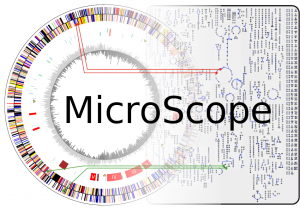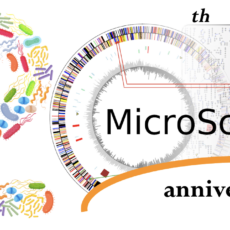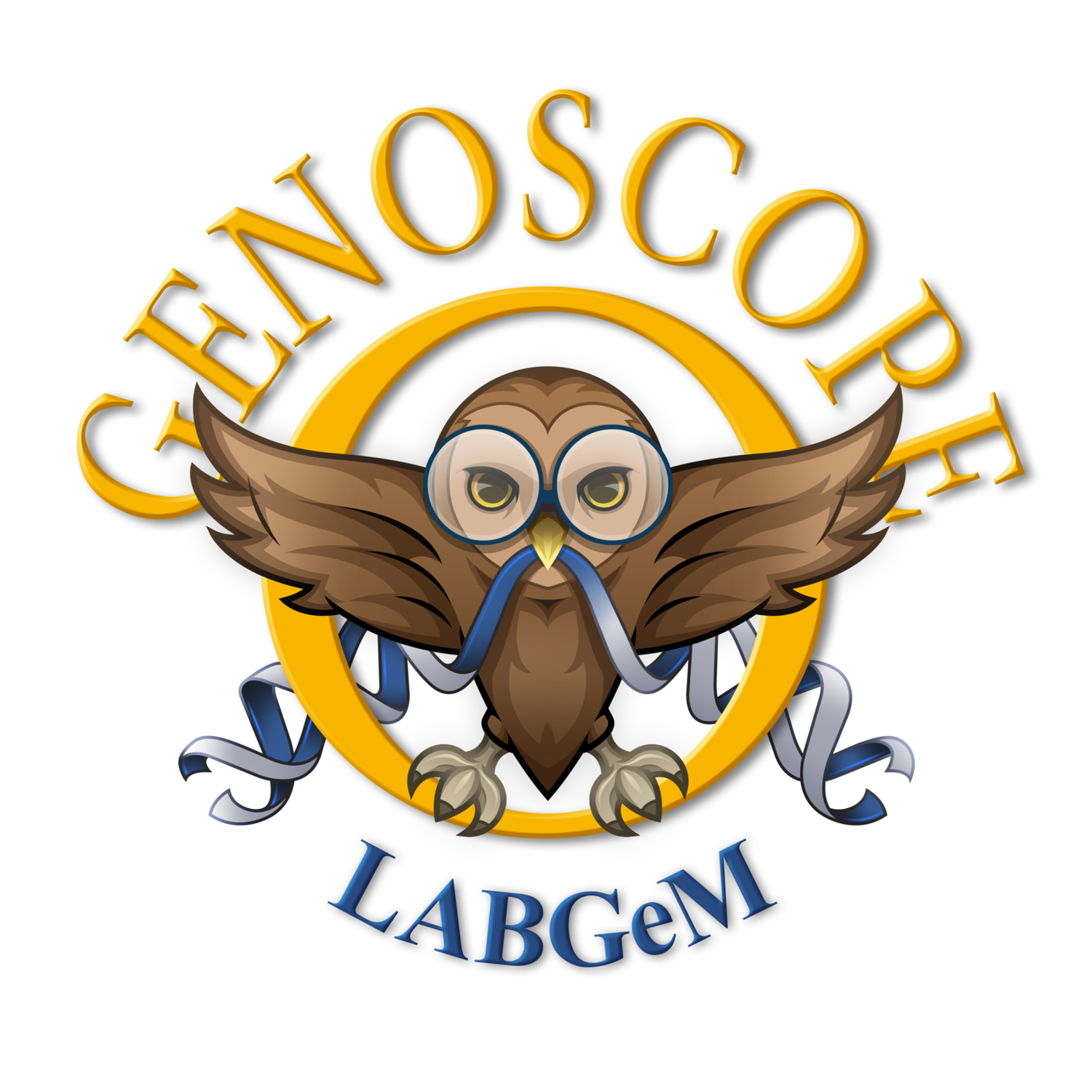 The MicroScope platform is an integrative resource that supports systematic and efficient revision of microbial genome annotation, data management and comparative analysis. Starting from the results of our syntactic, functional and relational annotation pipelines, MicroScope provides an integrated environment for the expert annotation and comparative analysis of prokaryotic genomes. It combines tools and graphical interfaces to analyze genomes and to perform the manual curation of gene function in a comparative genomics and metabolic context. The resource provides data from completed and ongoing genome projects together with post-genomic experiments (i.e. transcriptomics, re-sequencing of evolved strains, mutant collections) allowing users to improve the understanding of gene functions.
The MicroScope platform is an integrative resource that supports systematic and efficient revision of microbial genome annotation, data management and comparative analysis. Starting from the results of our syntactic, functional and relational annotation pipelines, MicroScope provides an integrated environment for the expert annotation and comparative analysis of prokaryotic genomes. It combines tools and graphical interfaces to analyze genomes and to perform the manual curation of gene function in a comparative genomics and metabolic context. The resource provides data from completed and ongoing genome projects together with post-genomic experiments (i.e. transcriptomics, re-sequencing of evolved strains, mutant collections) allowing users to improve the understanding of gene functions.
The MicroScope platform is constantly evolving both in terms of data content and of new analysis tools some of them being developed in the context of our research projects.
Last news about MicroScope:
The version 3.17.2 of the platform is now deployed: The CRISPR and Cas genes detection tool CRISPRCasFinder has been updated to version 4.3.2 (https://github.com/dcouvin/CRISPRCasFinder/). This version uses Muscle version 5.1.0 (http://www.drive5.com/muscle/) and Vmatch version 2.3.1 (http://vmatch.de/) to detect CRISPR arrays. We also corrected a few bugs Please report us any ...
Dear MicroScope users, MicroScope will be off-line from Friday May 24th 5pm CEST to Monday May 27th around 8am CEST. This interruption is necessary to maintain the air conditioning system of our IT infrastructure. Services opened the week before might take a little longer than usual to deliver but should ...
The version 3.17.1 of the platform is now deployed: The macromolecular systems detection tool MacSyFinder has been updated to version 2.1.2 (Néron et al., 2023). The systems detection method has been significantly improved in this version. Moreover, we now detect a wide range of secretion and conjugative systems, which are ...
Dear MicroScope users, Due to a maintenance operation, Microscope will be unavailable for approximately 2 hours on Wednesday 17 April from 6am UTC . We apologise for any inconvenience caused. The LABGeM Team ...

The version 3.17.0 of the platform is now deployed: This version doesn't bring any new features, but corresponds to a migration to a new web server. With this and some under the hood changes, MicroScope should be faster. We also corrected a few bugs Please report us any bugs you ...

The version 3.16.4 of the platform is now deployed: Integron Finder results in MicroScope have been updated. We are now using the version 2.0.2 of Integron Finder (https://github.com/gem-pasteur/Integron_Finder) which boosts the efficiency of the integron location and the accuracy of integrase detection. Also, it only notifies CALIN (Clusters of attC ...

The version 3.16.3 of the platform is now deployed: eggNOG results in MicroScope have been updated. We are now using the version 5 of eggNOG (http://eggnog5.embl.de) which includes a complete update of the genomes and functional databases. In addition to the functional annotations for each ortholog group (OG), COG categories ...
Dear users, We have decided to retire our old web tools MICHECK and AMIGene. Those tools have not been maintained for several years and are no longer useful as they (and many others) are integrated in MicroScope. We will proceed during next week (2024-W02). The LABGeM Team ...

Over the past two decades, MicroScope has been a leading platform empowering microbiologists with powerful tools and resources to delve deep into the fascinating world of microbial genomics. To celebrate this milestone, we invite you to join us at the Genopole of Evry on September 26th 2023. During this day ...
Bacteriophages (phages) are the most abundant viruses on the planet. The majority of free-living prokaryotic species are thought to be infected by phages, as evidenced by the widespread presence of prophages in prokaryotic genomes. A prophage is a bacteriophage genome that is integrated into the genome of a prokaryote. Given ...
 The MicroScope platform is an integrative resource that supports systematic and efficient revision of microbial genome annotation, data management and comparative analysis. Starting from the results of our syntactic, functional and relational annotation pipelines, MicroScope provides an integrated environment for the expert annotation and comparative analysis of prokaryotic genomes. It combines tools and graphical interfaces to analyze genomes and to perform the manual curation of gene function in a comparative genomics and metabolic context. The resource provides data from completed and ongoing genome projects together with post-genomic experiments (i.e. transcriptomics, re-sequencing of evolved strains, mutant collections) allowing users to improve the understanding of gene functions.
The MicroScope platform is an integrative resource that supports systematic and efficient revision of microbial genome annotation, data management and comparative analysis. Starting from the results of our syntactic, functional and relational annotation pipelines, MicroScope provides an integrated environment for the expert annotation and comparative analysis of prokaryotic genomes. It combines tools and graphical interfaces to analyze genomes and to perform the manual curation of gene function in a comparative genomics and metabolic context. The resource provides data from completed and ongoing genome projects together with post-genomic experiments (i.e. transcriptomics, re-sequencing of evolved strains, mutant collections) allowing users to improve the understanding of gene functions.



